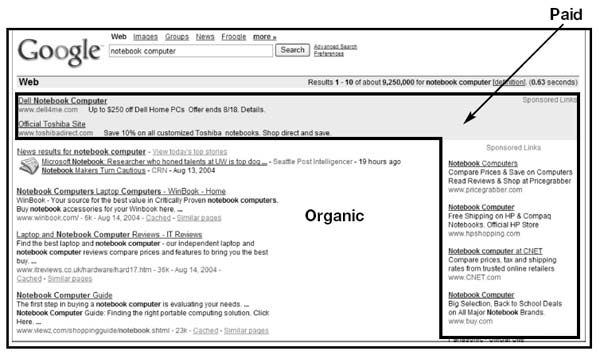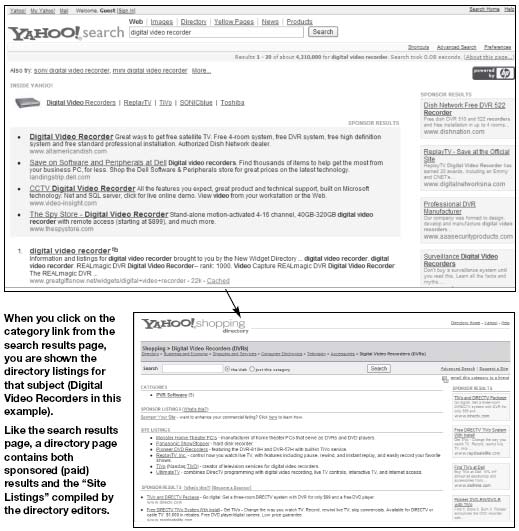Search Engine Marketing, Inc.: Driving Search Traffic to Your Company's Web Site. Part 1

Search Engine Marketing, Inc.: Driving Search Traffic to Your Company's Web Site. Part 1
This content is excerpted from Chapter 1 of the new book, "Search Engine Marketing, Inc.: Driving Search Traffic to Your Company's Web Site", by permission of Prentice Hall PTR. ISBN 0131852922, copyright 2005. All rights reserved. To learn more, please visit: https://www.phptr.com/title/0131852922.
The Basics of Search Marketing
You are ready to go. You are motivated. You are just itching to dive into search marketing. But where do you start? The basics, that's where.
First, in Chapter 1, "Why Search Marketing Is Important . . . and Difficult," we examine what search marketing is all about. We look at the way search usage is exploding and why search marketing is so valuable to your organizationhow it can drive visitors to your Web site. You will be convinced that your Web site cannot ignore Web searchers any longer. But before being overcome by irrational exuberance, we also take a cold look at why some companies find search marketing so hard to doand why the larger your Web site, the tougher it is.
Building on that overview, Chapter 2, "How Search Engines Work," dives into how search engines workwhat happens when someone is looking for a word, where the results on the screen come from, and how your Web site can show up right on that search results page. You will take a guided tour of the leading search engines and learn which ones to pay attention to. That sets the stage for Chapter 3, "How Search Marketing Works," where we dig into search marketing methods. We teach you the three basic search marketing techniques, pointing out the benefits of each, so you can start thinking about which ones are most important to you. We also explain how each technique works and review which search companies you will work with for each one.
We wind up Part 1 with Chapter 4, "How Searchers Work," where we peek inside the mind of the searcher. Find out what these folks are really looking for when they type in one or two words. Learn to use your knowledge of searchers to your advantage.
Regardless of what job you have now, by the time you complete Part 1, you will have all the background needed to be a search engine marketer. You will know the terminology and the concepts. You will be ready to learn how to create your very own search marketing plan.
Why Search Marketing Is Important . . . and Difficult
Search marketing. Perhaps you've heard this term kicked around, but you don't know what it means. Or, if you do know, you don't know where to start. As with anything new, if you take it step by step, you can learn it. A systematic approach can lead to search marketing success in any organization.
When a searcher types a word into Google, finds your home page, and clicks through to your site, you have attracted a visitor from a search site. If you do nothing at all, searchers will still find your sitesometimes. To maximize the number of searchers coming to your site, however, you must take specific actions to attract visitors to your site from search sites. That's search marketing. This book shows you how to become a search marketer. This chapter covers the following topics:
|
Before examining the promise and the challenges of search marketing, we need to explore what we mean by Web search.
Web Search Basics
You know search is important. You want to attract search visitors to your site. You are reading this book because you expect to learn what you need to know so your site succeeds at search marketing. And the most fundamental fact behind what you already know is that more and more Web users are searching.
Congratulations on spotting the trend! Your intuition that search usage is growing is correct. Seventy-six percent of all Web users performed at least one search in January 2004, totalling 114 million Web visitors to search sites. Fully 64 percent of Web users employ search as their primary method of finding things. The top three search sites account for more than 5 percent of all Web site visits!
Beyond the numbers, search is becoming a cultural phenomenon. If you have never "Googled yourself" (searched for your own name in Google), I bet you are going to do so now. Even people who do not use the Web have heard of Google and Yahoo! The Web is growing in popularity every year, and search is growing right along with it. And younger market segments cannot be reached as easily through traditional advertising, because teens and young adults now spend more time online than watching television. When you add it all up, your Web site cannot ignore the increasing importance of search to your visitors.
But that does not make you an expert in how to do search marketing. You might not know the first thing about how to get your site into the top search results. Maybe you heard that your competitors are succeeding at search marketingand one of your customers told you that your site cannot be found. You want to fix it, but how?Despite how little you might know, you need to learn just two things to get started:
The kinds of search results. When a search site responds to a searcher, different kinds of search results display. To begin your search education, we explain each type of display.
Where searchers go. You might have a favorite search site, but not all searchers use what you do. Some search sites are even specific to a particular region or country. You need to understand which search engines are the most popular so that you can focus on them in your marketing efforts.
Let's begin with an overview of Web search results.
Kinds of Search Results
When we talk about search, we are actually referring to two distinct ways that search results land on the screen, as shown in Figure 1-1:
Organic results. Also known as natural results, organic results are what made Google famous. Organic results are the "best" pages found for the words the searcher entered. When people refer to search engine optimization (SEO), they are talking about how you get your site's pages to be shown in organic search results. Organic search is what most people think of when they talk about Web search, and searchers click organic results 60 percent of the time. Searchers trust organic results, and therefore organic search must be part of your search marketing program. It can take time to succeed at organic search, but your time investment will pay off in the long run.
- Paid results. This term refers to a variety of revenue-generating activities by search sites, encompassing both paid inclusion and paid placement. Paid inclusion guarantees that a site's pages have been catalogued by the search site, so that they can be returned when they closely match an organic search. Paid placement allows a Web site to pay to have its page shown in response to a particular search word entered, regardless of how closely the page matches what the searcher entered. Paid search programs are the quick fix to attracting searchers to your Web site, and search marketers are responding. The paid search market hit $2.9 billion in 2004 and is expected to nearly double to $5.5 billion by 2009.

Figure 1-1 Types of search results. Google's results page has always separated paid from organic results, but other sites have at times combined them.
Another form of paid search is known as paid listings or directories, as shown in Figure 1- 2. Directories are manually maintained classification systems that list Web sites according to each subject category that describes them. Directories are maintained by human editors who examine every Web site submitted to them by the site owner and decide under which subject a site should be listed.You can see in Figure 1-2 that an editor decided to list Tivo's company Web site under the Digital Video Recorder category. (Because the results are created manually, search geeks and other technologists do not consider directories to be a kind of search, but Web users do.)

Figure 1-2 Directory listings. Yahoo! adds a directory listing showing the subject category that matches the result, giving the searcher one more choice.
Reproduced with permission of Yahoo! Inc. © 2005 by Yahoo! Inc. YAHOO! and the YAHOO! logo are trademarks of Yahoo! Inc.
Search engine marketing (SEM) is a broader term than SEO that encompasses any kind of search results. SEM is everything you do to raise your site's visibility in search engines to attract more visitors. Regardless of what term you use, search marketing is a critical way for your site to attract new visitors.
Now that you have learned about the types of search results, we can survey the most popular search sites around the world. In this book, we refer to search sites such as Google and Yahoo! as search engines.
Created: March 27, 2003
Revised: August 05, 2005
URL: https://webreference.com/programing/search/1


 Find a programming school near you
Find a programming school near you